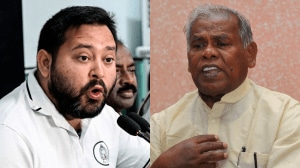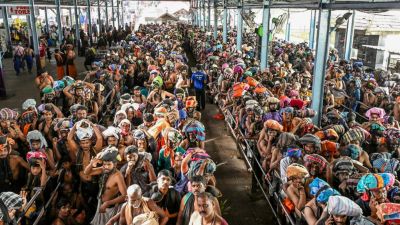Gullu was to come home for lunch that day. He took it casually, and didn’t turn up. I called him up in the afternoon, and he promised to come home for dinner. That night never came… he was killed that night” — that’s how 80-year-old Physics professor Ajoy Roy recounted February 26, the day his son Avijit — Gullu was his nick-name — was killed.

Avijit Roy, 42, a Bangladesh-American writer and blogger known for the Bengali freethinkers’ blog, Mukto-Mona, was murdered by extremists. After Roy, two more bloggers — Wasiqur Rehman and Ananta Bijoy Das — have met the same fate, sparking international concern and outrage on the killings of liberal voices in Bangladesh by extremists. So, when Prime Minister Narendra Modi visits Bangladesh on Saturday, this could figure in his discussions with top political leadership.
[related-post]
Story continues below this ad
More than three months after Avijit was killed — al Qaeda claimed responsibility in May — Ajoy Roy, sits in a modest second floor house at the Eastern Housing apartments in Dhaka.
The drawing room’s walls have a poster of Einstein, a black-and-white picture of his two boys — Avijit and Anujit, both in elementary school wearing shorts (they must not be more than 8-10 year-olds, he recalls), photographs of Mujib-ur-Rehman and a poster tracing the chronology of Bangladesh’s liberation war. Some plastic flowers — in pink, yellow and purple colours — adorn the drawing room, along with pink and yellow curtains and sofa covers.
[Also read: PM Modi’s maiden visit ‘historic’, says Bangaldesh media]
A letter from Dhaka university teachers, framed, expressing outrage at Avijit’s killing, is lying on the table.
Story continues below this ad
Ajoy is looking after his wife who is seriously ill. His younger son and his wife stay with him. The only security check in plance is at the entrance of the apartment complex, where an old guard asks a visitor to make an entry in the register.
Avijit, who lived in the US, had come to Bangladesh on February 16 to launch two of his books. On the evening of June 26, Avijit was returning from the book fair when he was hacked by machete-wielding men. His wife, Rafida Ahmed Bonya, also suffered injuries as her fingers were severed.
Bonya was taken to the US, and her fingers have been re-constructed and nerves regenerated. “She can now type emails. That is remarkable since all her fingers were injured,” Ajoy said. She now lives with her daughter, who has just joined Johns Hopkins University.
Roy is also picking up the pieces of his life, even as he gets disturbed by the repeated killings of bloggers like Rehman and Das. “There is a perception created that bloggers are atheists. That is wrong. The society is also developing a similar attitude,” he says. While he has not thought about moving out of the country, he said, “It was a big setback for me personally. But I have to be practical as I have an ailing wife. I think of relocating my younger son and his wife.”
Story continues below this ad
Some civil society activists invited him to meet Prime Minister Narendra Modi, when he is in Dhaka on June 6 and 7. “I refused, I don’t want to talk about these sad issues.”
Avijit’s case has sparked concern among bloggers’ in Bangladesh. Arif Jebtik, 38, whose name has been put out in a list of targets by the extremists, says his life has turned upside down since death threats became real. “I quit my job with a newspaper. I had to change my house. I can’t drop my daughter to school. I can’t jog in the park, as I was followed once or twice there. My mother has been threatened in Sylhet, so she moved with me in Dhaka,” said Arif, who was one of the early bloggers in Bangladesh.

 Ajoy Roy, slain blogger Avijit’s father. (Source: Express photo)
Ajoy Roy, slain blogger Avijit’s father. (Source: Express photo)






